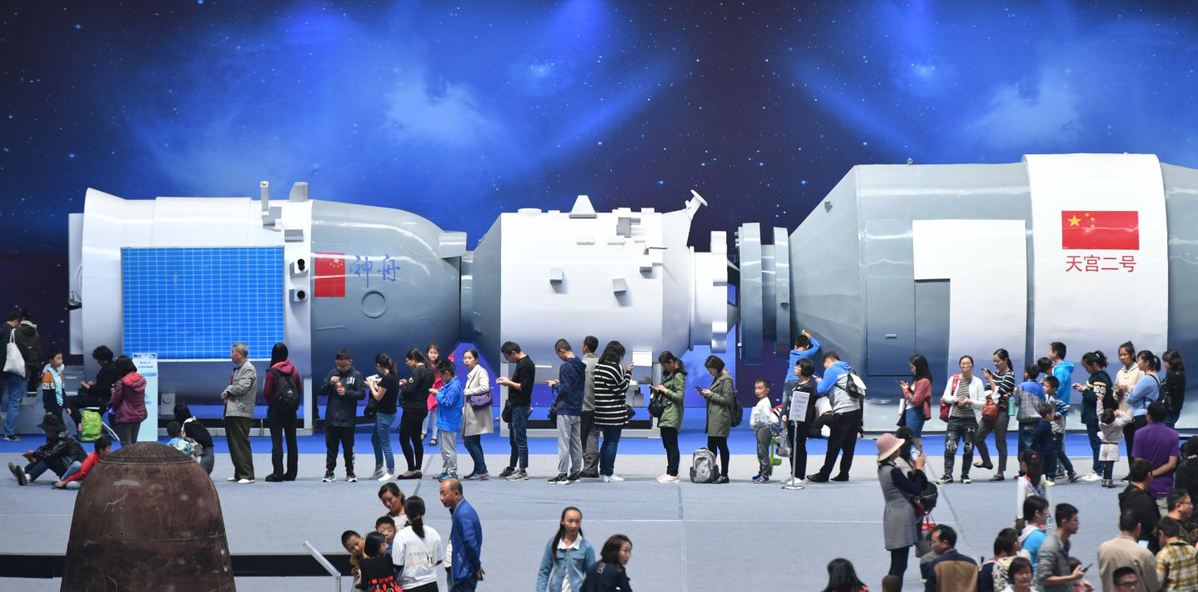Manned spacecraft under development
 0 Comment(s)
0 Comment(s) Print
Print E-mail China Daily, October 26, 2018
E-mail China Daily, October 26, 2018
Chinese engineers are developing the nation's second generation of manned spacecraft which will be tasked with servicing the country's space station and participating in manned lunar missions, said a researcher involved with the program.

The new-generation spacecraft, which has yet to be named, will have a new aerodynamic design that will be more streamlined than the Shenzhou series, China's first-generation manned spacecraft family, said Yang Lei, a senior designer at the China Academy of Space Technology, while speaking at the Fifth Manned Space Conference on Wednesday in Xi'an, Shaanxi province.
It will consist of two sections-a re-entry module that will house astronauts and control the entire craft during flight, and a service module that will contain power and propulsion systems, he said.
By comparison, the current Shenzhou-series spacecraft has three modules tasked with re-entry, orbiting and propulsion.
The new spacecraft will be reusable and will adopt a host of advanced technologies such as new heat-resistant materials, non-toxic propellants, human-computer interaction systems and high-performance solar batteries, Yang said, adding that its inner design and equipment layout will be more ergonomically friendly.
Yang said the China Academy of Space Technology has been carrying out experiments and tests on major components of the new spacecraft, and plans to conduct test flights atop the Long March 5B carrier rocket, which is also under development and is scheduled to make its maiden flight in June.
The new spacecraft will be used in China's future space programs including the space station, manned lunar missions and manned deep-space expeditions, he added.
Currently, only China and Russia have manned spacecraft. The United States hasn't had any manned spaceship since 2011 when it retired all space shuttles.
All three space powers are developing new manned spacecraft-the US is building the Orion Multi-Purpose Crew Vehicle, Dragon 2 and CST-100 Starliner, and Russia is working on its Federation spacecraft.
Zhang Hongtai, president of the academy, previously told reporters that the overall capability of the next-generation manned spacecraft will be much broader than that of the Shenzhou series and will be as good as the US and Russian prototypes.






Go to Forum >>0 Comment(s)